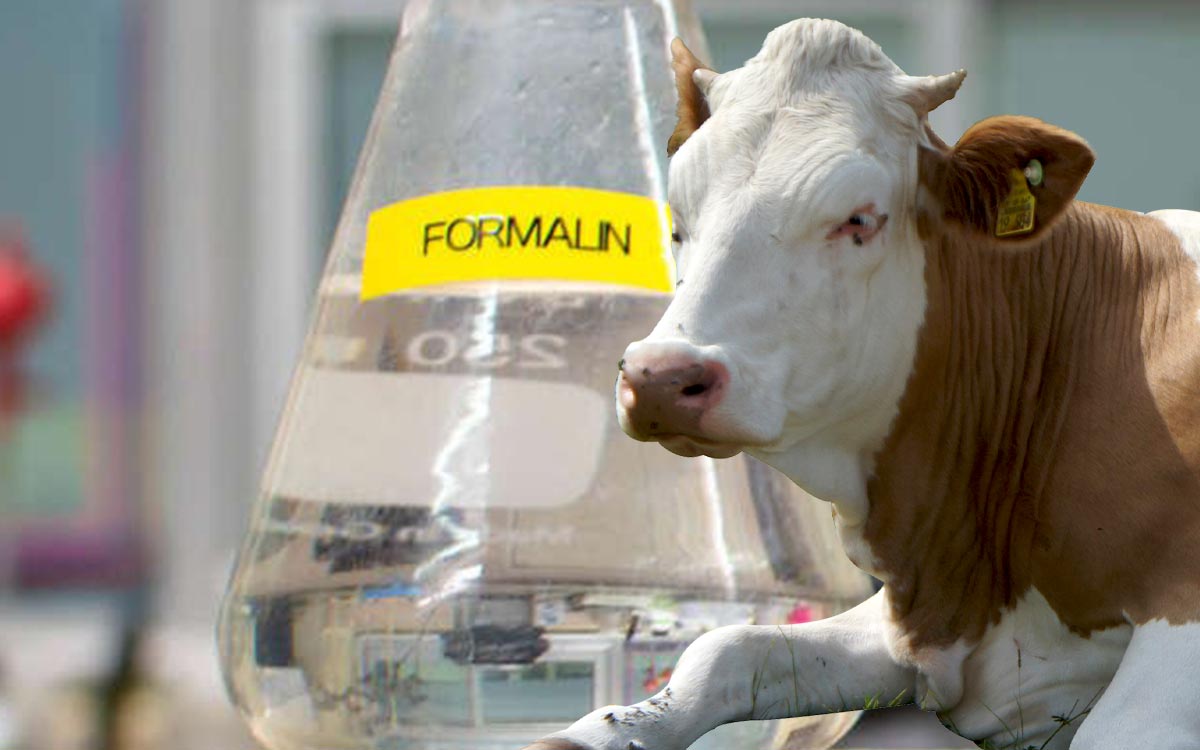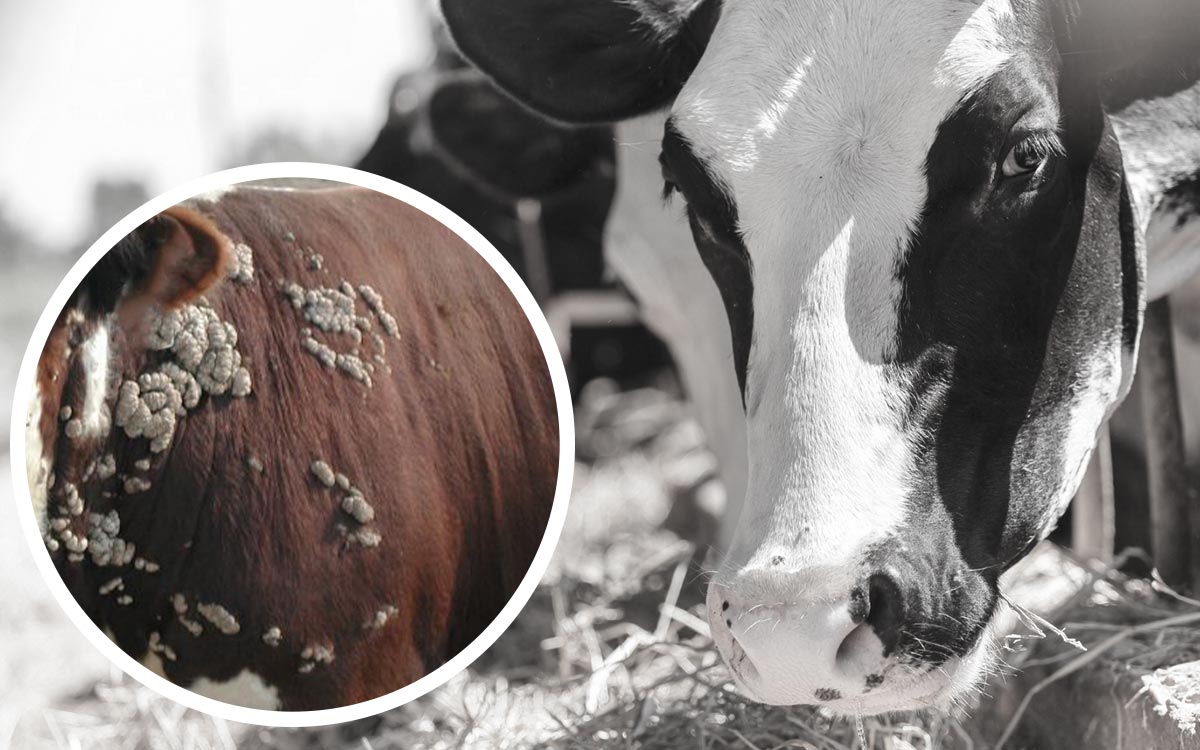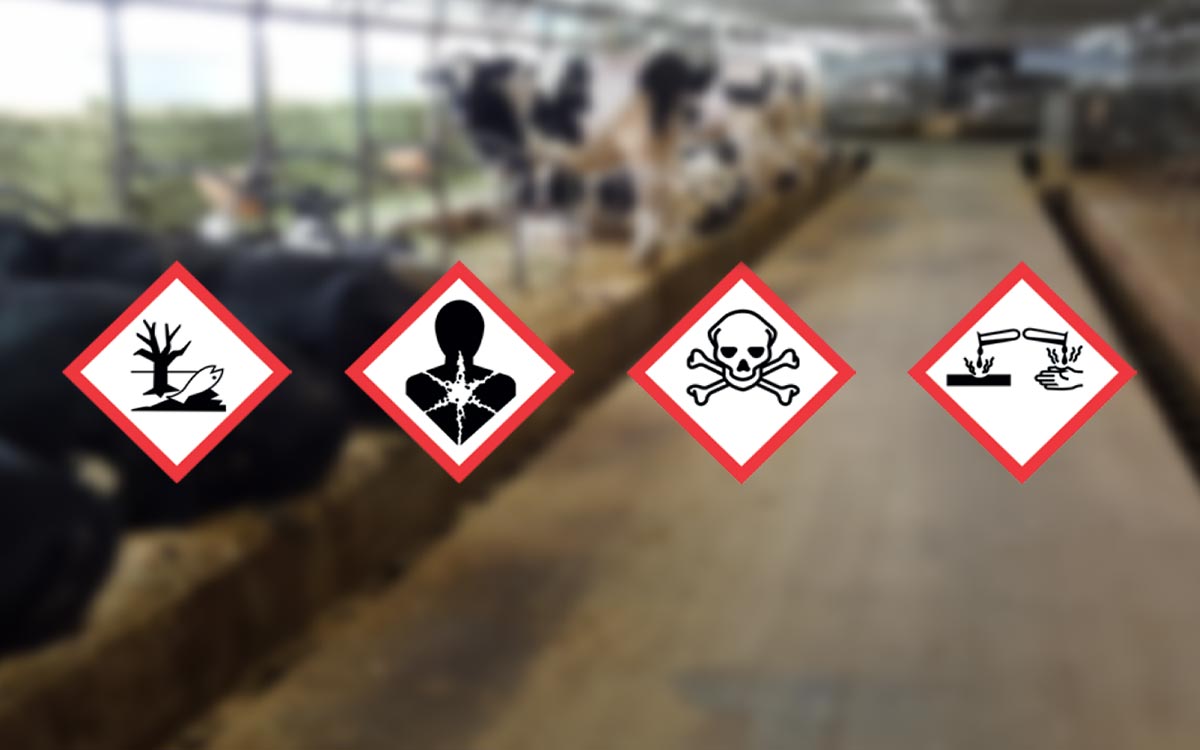Adding formalin (also known as formaldehyde) to the foot bath is believed to make hooves harder. But when lameness is an issue, hoof hardness doesn’t always matter. Before adding formalin to your hoof products shopping list, consider all variables. Our dairy producers are helped by getting informed whether or not to use this controversial product.
Find Hoof Products to Control the Root Cause of Lameness
There are two different ‘classes’ of hoof problems: infectious and non-infectious. The first class is skin related, and that’s where infectious bacteria do their damage. These problems can be treated topically with a wrap. A foot bath can also be used as a management tool on the dairy farms. The following conditions fall into this first category:
- Digital Dermatitis – includes warts, strawberry, etc. This disease is treated with Intra Hoof Fit Gel and is registered with an Health Canada OTC DIN. (Press release)
- Interdigital Dermatitis – includes heel erosion, slurry heel, etc.
- Foot Rot.
The non-infectious class is perhaps more complex and involves all of the horn-related problems (sole ulcers, white lines, double soles, etc.). These conditions can be ‘treated’ and controlled with by proper trimming and other preventive measures. The use of formalin in foot baths has no direct impact on this second group of disorders. Therefore, it’s important to have a proper diagnosis so that you can create a proper action plan for treatment and control.
I have created an easily downloadable hoof disease chart which contains the common hoof disease in cattle. This reference sheet can assist you with the diagnosis of hoof problems.
Are Hoof Products the Only Way to Harden Hooves?
Hoof hardness varies among herds even when you’re comparing animals on the same farm. Cows that are kept in dry lots tend to have harder hooves compared to ones kept in wet environments. The lactation stage also has an influence on hoof hardness. When trimming feet, I often notice a difference in hardness of the hooves, but I would hesitate to conclude that it is caused by the use of a foot bath or even a foot bath product. I tend to believe that the drier the environment, the harder the hoof.
Trimming an animal out of a dry lot or tie stall barn, where the hooves are relatively dry, is often like “chopping” concrete. It is difficult to get a knife into these hooves, but most of these animals will not have been through a regular foot bath protocol. Their herds’ hooves may have hardened as a result of climate or other variables.
Let’s explore the concept of dryness hardening hooves for just a moment. The hoof is a lot like a sponge: it absorbs moisture. It’s easy to test this out for yourself! The next time you trim, take a horn clipping and see how long it stays flexible and soft. It will soon get hard and sharp when it’s removed from the moist environment. This also happens when cows are kept in dry lots: the hooves get harder.

Record Keeping Worksheet
Are Hoof Products That Harden Hooves Even Effective?
Before you are thinking about using hoof products like formalin to harden your herd’s hooves, please ask your vet or hoof trimmer whether it will help. Ask them whether a softer hoof is more prone to problems than a hard hoof. You may be surprised by the answer. Finding the right hoof products can be a daunting task, but it’s a good idea to take some time to evaluate the situation before filling your supply cabinet.
Is Formalin Safe To Use?
 Studies have shown that formalin (formaldehyde) has carcinogenic characteristics in humans, meaning that it can cause cancer in humans. Furthermore, it can cause serious damage to organs including the eyes (blindness), heart, and kidney. Next time when touching formalin, think about your family and friends! There are definitely safer alternatives for foot bath use to control or prevent hoof problems.
Studies have shown that formalin (formaldehyde) has carcinogenic characteristics in humans, meaning that it can cause cancer in humans. Furthermore, it can cause serious damage to organs including the eyes (blindness), heart, and kidney. Next time when touching formalin, think about your family and friends! There are definitely safer alternatives for foot bath use to control or prevent hoof problems.
If you have any suggestions or question regarding this article, feel free to contact me through the Contact page. You can also download a printable version of this article, great for sharing with others.



